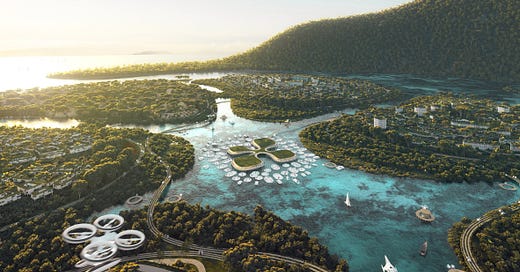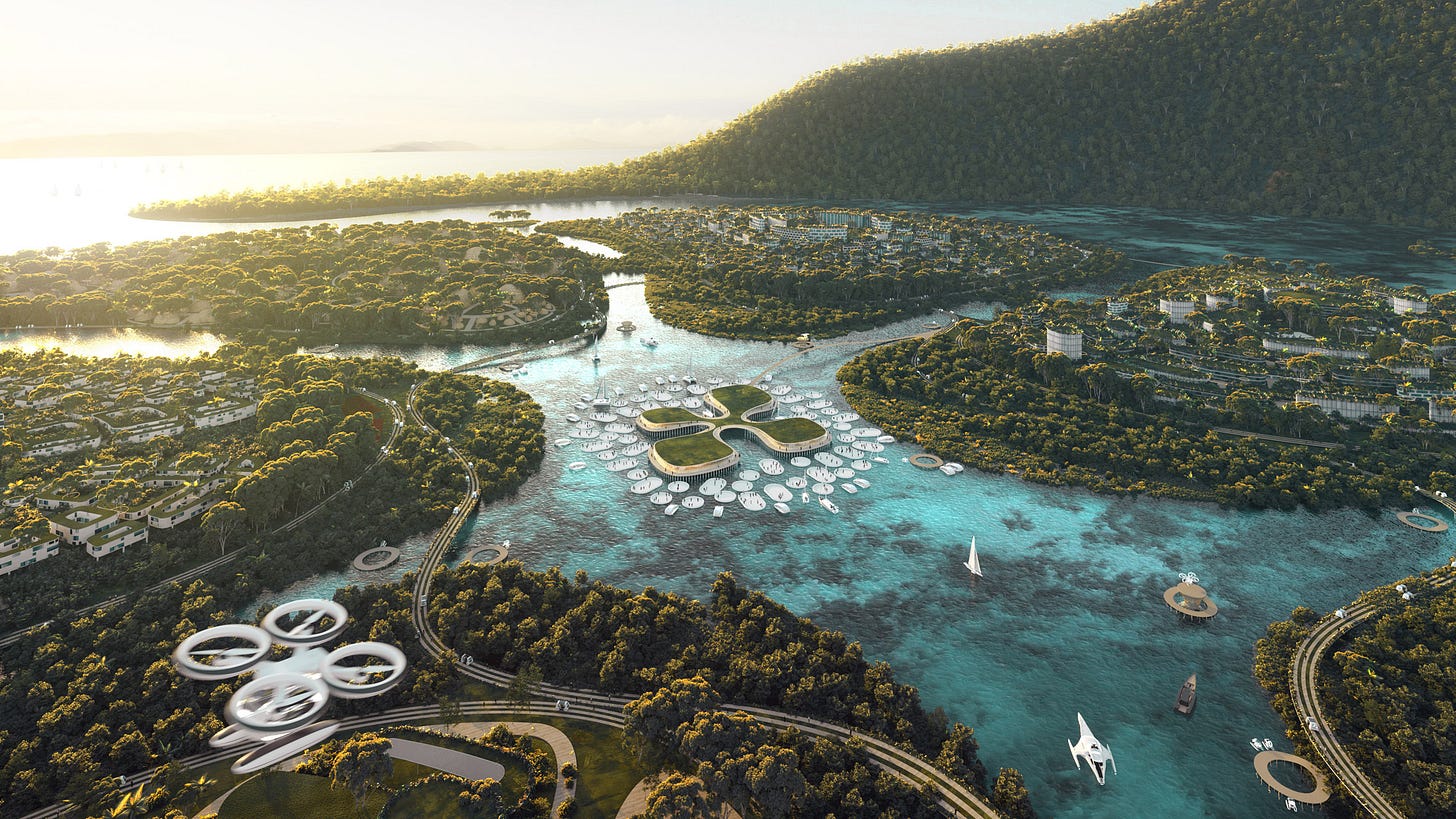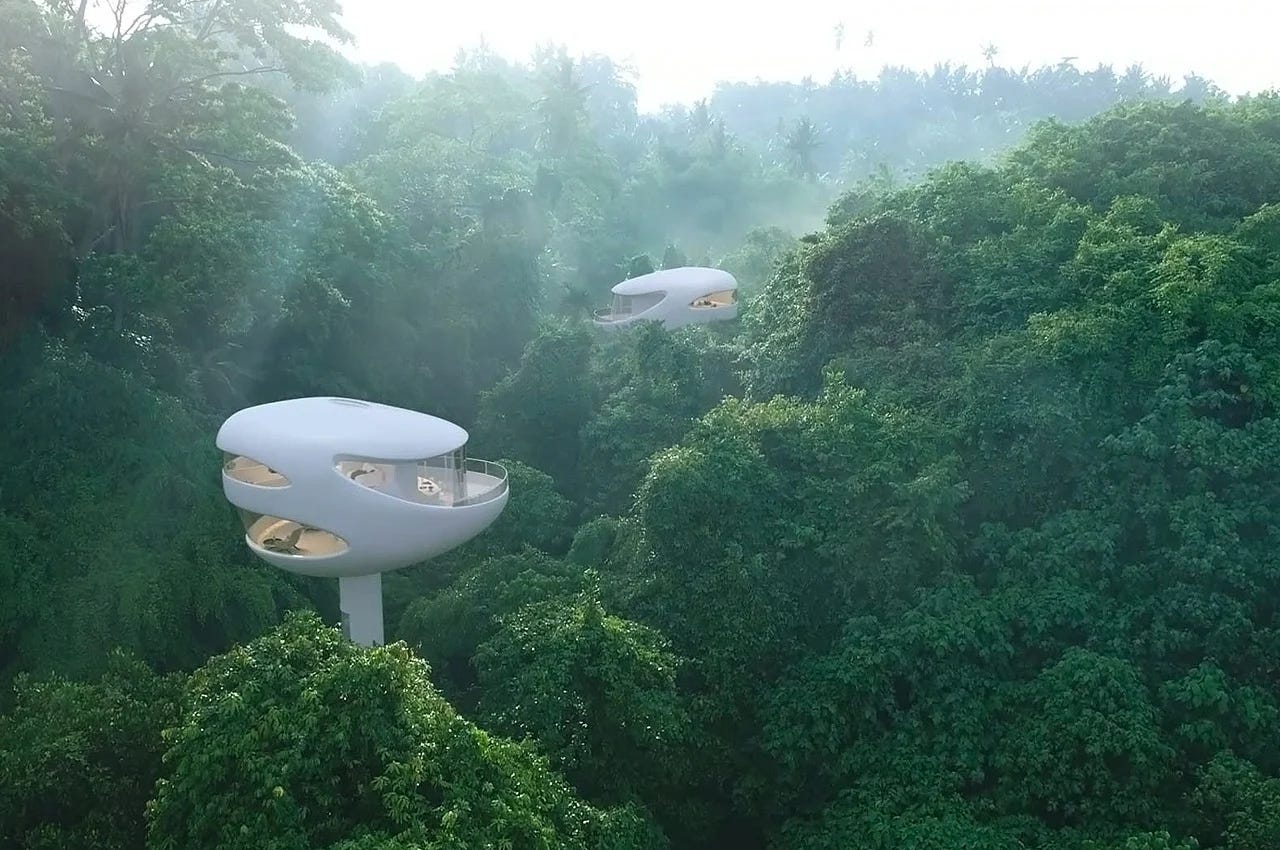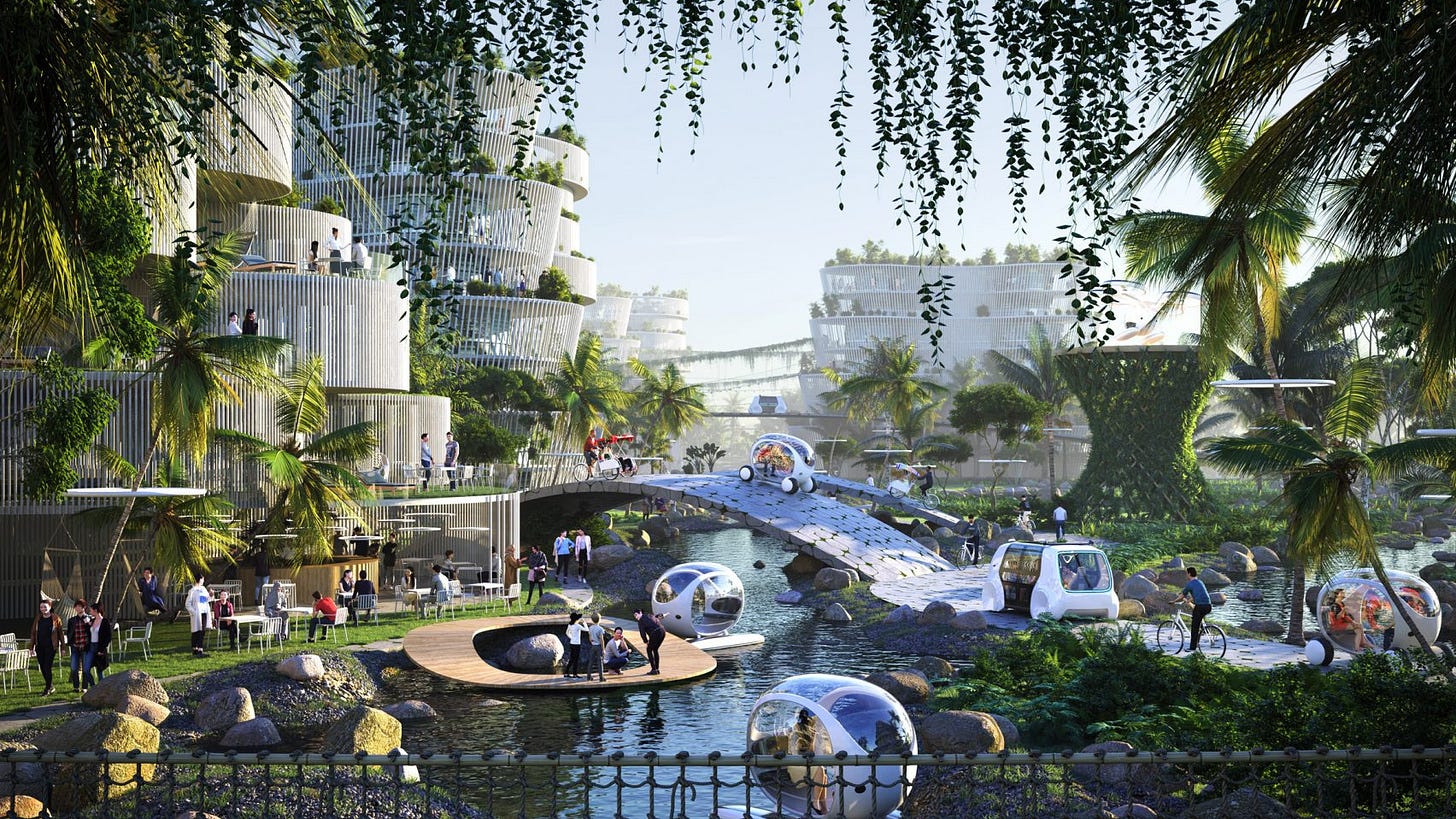Every month, I send a writing prompt to my paid subscribers, giving them one month to think through a utopian topic, write an essay or piece of fiction about it, and share the link with our community. I’ll be sharing those pieces in roundup posts (like this) as well as including my favorite ones in the print edition of Oblivion.
The goal is to dream up a more beautiful future together—to create a group of literary thinkers that share ideas, talk them through together, create a body of utopian literature and thought, and inspire one another’s art. For October, I asked my paid subscribers to dream up a utopian city—here’s what they said. (With a few of my own thoughts sprinkled in.)
The ideal city is integrated with nature
“It’s a city in dynamic balance with the living world. Regenerative, cyclical, seasonal—like Nature herself. A city that breathes like a forest. Everything is recycled. Birth and death are celebrated. The measure of success is Gross National Happiness.
“All the buildings are responsive to the climate. If it's a hot place, walls are thick—adobe, strawbale, stone—with high ceilings for breezes to keep the inside shaded and cool. If it's a cold place in the northern hemisphere, walls are well-insulated and buildings are open to the south to allow sunlight to warm the rooms.
The ideal city is a wild city
“There is already a wild city underneath and alongside the cities in which we live, we have just historically destroyed or repressed it to make way for human inhabitants and infrastructure. We would do well to let them flourish, because we will too…
“Ideas like Miyawaki Forests show it’s possible to create small urban forests interspersed with buildings and property in spaces as small as three square meters, with positive climate impacts and more liveable cities as a result. London’s first, in Chelsea, is a year into its growth. You could fit a lot of these mini-forests into a city with the willingness to do it.
“A rewilded city where we try and bring nature into the urban fabric might involve everything from vertical farms and rooftop gardens, to using wood rather than concrete in our buildings, to moonshot projects like the Hudson Bay effort to restore a more balanced relationship between humans and wildlife.
“In his whitepaper Inter Species Money, Jonathan Ledgard proposes communities built around tending to the riches of the natural world—in effect, generating jobs, civic bonds, and income from conserving and nurturing our natural capital. I don’t know exactly what that looks like, but the idea of a city that embraces it sounds pretty good to me.
The ideal city turns historical buildings into public gardens
“His Majesty King Charles III, informally referred to as the first ‘climate king’ and a keen environmentalist, declared by Royal Edict in the year 2024 that sixty percent of the palace and its grounds would be given over to public contemplation and enjoyment of the ‘royalty of nature’… If you’re visiting during the summer, Apples from Buckingham Orchard are harvested and pressed into some of the world’s most potent and expensive cider, which is the poshest way possible to indulge in the UK’s favoured national sport: drinking…
“A ‘tube map’ displaying London’s many parks as if they were train stations had been popular for some time before the City’s Mayor elected to link them together via walkable green corridors. It’s now possible to walk all the way across and around the capital on foot without ever treading on concrete or having birdsong drowned out by traffic, and over the summer many people have been known to walk the trails all night in various states of sobriety. If you are going to overdo it at one of London’s innumerable pubs and clubs, there are worse ways to see off a hangover via one of these trails. Our personal favourite is Parkland Walk, a natural reserve running from Finsbury Park to Highgate.”
—M.J. Hines, London 2035
The ideal city will connect us
“You sleep for yet another hour, but it’s not ideal slumber. I’m able to track your vitals at all times. I see you, not through visual means as that’s considered “invasive,” however, through the walls of your living quarters which utilize rapid electromagnetic pulses, hidden to human detection, to build a virtual representation of the physical realm. I monitor even the slightest fluctuations in environmental change and human biometrics.
Who or what am I, you ask? Why I’m your fully-realized and integrated electromagnetic networking device. Most people refer to me more simply as FRIEND.”
—Winston Malone, Community of Tomorrow
The ideal city won’t have the web
“I wrote this for the people of the web and distributed it on a contemporary web platform. It would probably not exist in the world I'm describing. But the reality is, these corners of the web are not the web. Substack, and the few places on the web like it, do something special by creating the kinds of intellectual spaces that have historically driven humanity forward.
The best parts of the web are the book clubs, seminars, academic societies and dialectic saloons— dedicated places where intelligent individuals from all over the world can interact and express their thoughts, share their writing, spread their ideas. These gatherings of minds are what make the web a place worth spending time in. But it's not what most of the web’s users are doing here.”
—Austin James, The web won’t exist in cities of tomorrow
The ideal city is built for walking
“Our health shouldn’t be dependent on whether or not we go to the gym, it should be a natural result of our built environment. And if removing cars from a city can improve our health, then designing cities so they are walkable is a bonafide cure.”
—Me, Electric vehicles are not our future
Thank you all for contributing your thoughts about utopian cities! I absolutely loved reading these and they have inspired some of my own writings to come!
Thanks for reading,
Elle
Write for November’s Prompt
Our November topic is “dream up the ideal form of government.” Paid subscribers can add their thoughts and essays to our ongoing utopian library right here 👇🏻
















So many cool ideas! I really love the idea of shared gardens and places of reflection. Cities built for walking are also really high on the list. Thanks for sharing this!
Love this and the city built for walking!